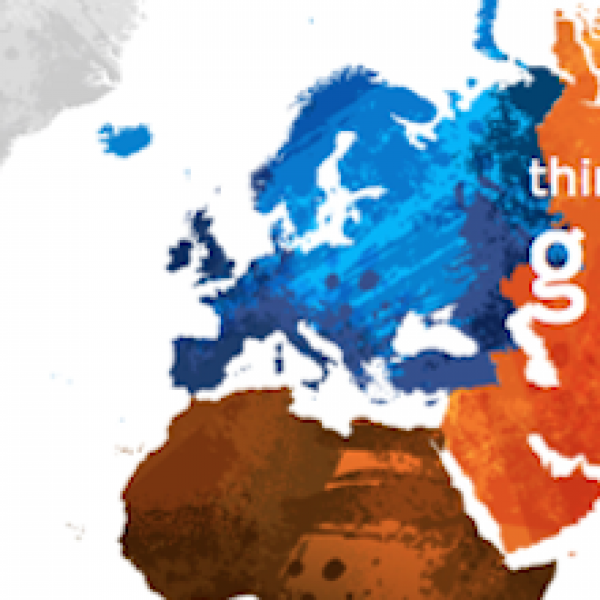
#iversityis2 made a virtual global circuit in October 2015 to mark the second anniversary of the launch of the iversity platform. Where was iversity in 2013, and where are its standing as global learning platform with free MOOCs today? What have changed for the platform, and what have changed for the team?
Yes, time flies. In 2013, we were busy collecting our first courses and partnerships with the MOOC Production Fellowship. We were a young, small online learning company with 10 new courses in production with a tight deadline to finish the platform. 2 years later, we have had over 100 courses and over 1 million course enrolments.
Big changes over the past 12 months include self-paced courses and PRO courses. Self-paced courses, which include some MOOCs and all PRO courses, mean that users can join and finish the course whenever they want. Although we introduced PRO courses, or professional development courses for a fee, our MOOCs will stay! This is how our CEO Hannes Klöpper explains it: “Our double strategy turns out to be a great success: While our MOOCs give everyone free access to quality higher education – e.g. students, life-long learners and refugees – our PRO courses teach participants key qualifications needed in today’s job market. Companies can train their staff online in a more flexible and affordable way than ever before. It’s a win-win situation for everyone: Students, universities, working professionals, companies and iversity.”
How do you prepare your annual program? On what basis you select the courses you’ll have?
The learning interests of our users are all over the map. Some online learning platforms only focus on a certain field, i.e. coding or design, but we want to continue to offer variety. For our MOOCs, it’s a balance between finding great institutions known for quality education, a topic that is either interesting or skill-oriented and a concept that fits our didactic standards. PRO courses must offer professional skills by trusted partners. These courses come with a fee, so it is very important that they are high-quality and offer high-value for professional development.
What are the comments of your users?
Testimonials about MOOCs:
More testimonials about PRO courses can be found halfway down the page HERE.
Which course has been most successful for you in the past year?
Our first PRO course “Visual Thinking for Business” was a great success. Not in terms of enrollments because it is a fee-based course, but in terms of interaction. For example, the new journals feature allows people to write articles, take notes, upload images and do homework assignments all in one digital course-connected blog. You can also follow and comment on other people’s journals, as well as use private settings to keep your posts to yourself.
MOOC successes was the German-language MOOC “Klimawandel und seine Folgen” (Climate Change) and “Digital and Social Marketing Marketing”, highlighting hot topics that interest our users.
Three courses that your team would recommend as ‘a must’ for global youth?
Particularly for global youth, we would recommend “Social Innovation”, “Employability Skills” and “Governance and Policy Advice”. These courses will give young global upcoming professionals the skills that prepare them to start their own ventures, navigate the international job market and understand the economic and social processes of political institutions. Of course, this is a broad spectrum of topics. We hope each online learner is able to find a topic that interests them.
As one of leading global platforms providing free MOOCs, how well do you think that MOOCs are established within the educational system? Are schools, universities accepting MOOCs in their programs, or do you think that some environments are more resilient to this trend? To sum up this question, at which level MOOCs are established among stakeholders in global learning environments?
Over the past 5 years, MOOCs have mainly served as an educational supplement to students and working professionals, and branding and marketing channel for educational institutions. More and more, MOOCs – or any form of online course – as well as online learning platforms are being experimented with and improved upon as online education becomes both more normal and more in demand. Popular formats like the “flipped classroom”, illustrate how online education is being integrated into formal education, moreover how online courses and resources are important learning materials that can support offline learning. MOOCs aren’t a trend nor are they fully integrated into university programmes – I’d say they are a part of the overall evolution of education becoming more digitalised.
Where do you see the future of education? Are the MOOCs into ‘the big picture’?
Whether “MOOCs” specifically will last forever remains to be seen, but without a doubt, online, digital formats in education will persist and become more and more prevalent. Nearly every aspect of our lives is being digitalised – if educational institutions don’t want to fall behind, they need to think online.
What should we see from iversity one year from now, when #iversityis3?
Expect some exciting improvements to the platform, both in terms of looks and new features. We will also more towards more self-paced MOOCs as well as more PRO course offerings.
Read more about how the story of iversity began HERE.




